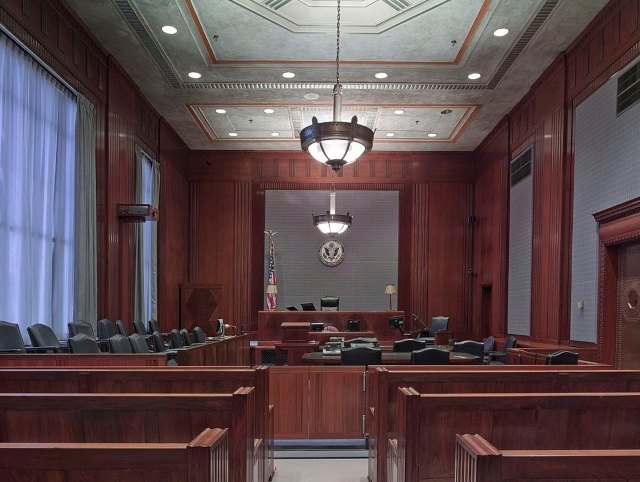Why You Need a Lawyer for Your Habeas Corpus Instance
Why You Need a Lawyer for Your Habeas Corpus Instance
Blog Article
The Ins And Outs of Filing a Habeas Corpus Petition: An Overview for Seeking Post-Conviction Alleviation
Navigating the complexities of filing a habeas corpus request is a crucial action for people seeking post-conviction alleviation. By checking out the details of this vital legal device, individuals can reveal prospective avenues for tough sentences and inevitably strive for reasonable end results.
Comprehending Habeas Corpus Petitions
When seeking to recognize habeas corpus petitions, it is critical to understand the fundamental legal principles underlying this effective legal treatment (Lawyer). Habeas corpus, a Latin term definition "you shall have the body," is a lawsuit that allows individuals to look for alleviation from unlawful detention or imprisonment. This centuries-old writ acts as a secure versus arbitrary state activity by offering a mechanism for people to test the legitimacy of their confinement
The foundation of a habeas corpus request is the assertion that the petitioner's constitutional legal rights have actually been broken, causing their unlawful apprehension. This can include cases of due process offenses, ineffective aid of counsel, recently found evidence, and even jurisdictional errors. Habeas corpus requests usually emerge in the context of criminal procedures, where individuals test the legality of their sentences or the problems of their arrest.

Premises for Filing
There are a number of lawful grounds on which individuals might file a habeas corpus application, each serving as a basis for challenging the lawfulness of their apprehension. These grounds usually include constitutional offenses, inadequate support of advice, recently found evidence, prosecutorial misbehavior, and administrative flaws.
Constitutional violations create an usual basis for filing a habeas corpus petition, including cases such as offenses of the right to a reasonable trial, due process, or security versus cruel and uncommon penalty. Inadequate assistance of guidance claims emerge when a defendant's legal depiction throughout the test or allure was so lacking that it weakens self-confidence in the end result. Freshly discovered evidence, if shown to be worldly and likely to alter the end result of the instance, can also require habeas alleviation. Prosecutorial transgression includes dishonest or illegal conduct by the prosecution that prejudices the offender's civil liberties. Finally, administrative flaws might develop when the court that convicted the individual did not have the authority to do so, supplying a basis for testing the detention with a habeas corpus application.
Procedural Demands
Understanding the step-by-step demands for submitting a habeas corpus application is important for making certain that the legal procedure is adhered to properly and effectively. One fundamental step-by-step need is the exhaustion of state solutions. This indicates that before a government court can consider a habeas corpus request, the petitioner should have first provided the insurance claims in state court and pursued all readily available opportunities of alleviation. Failure to exhaust state treatments can result in the federal court dismissing the request.
Additionally, there are strict time restrictions for filing a habeas corpus application. The Antiterrorism and Effective Death Sentence Act (AEDPA) enforces a 1 year statute of limitations, beginning from the date on which the conviction came to be final. This deadline can be subject to particular exceptions based on certain conditions.
Additionally, step-by-step needs mandate that a habeas corpus application must consist of all relevant claims and sustaining evidence. Incomplete or inadequate requests may be dismissed or postponed, highlighting the relevance of detailed preparation and adherence to procedural policies in looking for post-conviction relief with habeas corpus.
Challenging Convictions
Just how can individuals effectively find more information test sentences through the process of filing a habeas corpus application? Testing convictions via a habeas corpus application entails presenting legal debates that show an infraction of constitutional rights, procedural mistakes, or brand-new proof that was not readily available throughout the original test. To do well in testing a conviction, petitioners must reveal that there was an essential defect in the criminal proceedings that caused a wrongful conviction or an unfair sentence. This might include inefficient aid of advice, prosecutorial misbehavior, freshly found evidence of virtue, or offenses of the petitioner's civil liberties. Lawyer.
When filing a habeas corpus application to challenge a sentence, it is essential to stick to rigorous procedural needs, existing engaging legal disagreements sustained by proof, and verbalize exactly how the claimed mistakes influenced the fairness of the trial. habeas corpus attorney mississippi. Seeking the aid of knowledgeable lawyers or organizations specializing in post-conviction relief can considerably enhance the chances of a successful result when challenging sentences via a habeas corpus application

Safeguarding Fair Outcomes
To achieve fair end results in difficult convictions via the declaring of a habeas corpus request, people need to diligently evaluate the lawful basis for their cases and existing compelling proof sustaining their assertions. Protecting reasonable end results in post-conviction alleviation procedures needs an extensive understanding of the lawful system, attention to detail, and tactical planning. It is necessary to have a clear approach in position, detailing the certain premises for the request and just how the here and now evidence lines up with lawful arguments.
Moreover, people looking for post-conviction relief has to comply with all procedural requirements and due dates to guarantee their request is thought about by the court. Failing to fulfill these requirements might lead to the dismissal of the petition without the advantages being assessed. In addition, involving the services of experienced lawyers, such as lawyers concentrating on habeas corpus applications, can significantly boost the chances of securing fair end results.
Conclusion
To conclude, the ins and outs of submitting a habeas corpus request for looking for post-conviction relief involve recognizing the premises for declaring, conference procedural needs, testing convictions, and protecting fair outcomes (federal habeas corpus nebrska). It is necessary to meticulously browse the lawful procedure to ensure the most effective possibility of success in looking for relief via this opportunity. Comprehending the intricacies of habeas corpus applications is vital for individuals looking for to challenge their sentences and obtain justice
Report this page